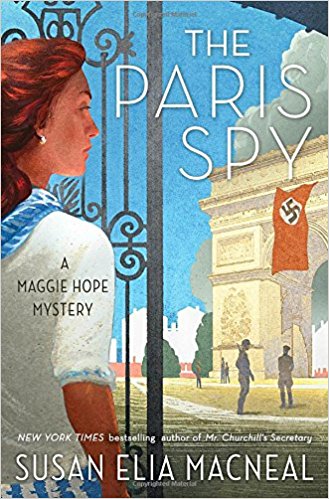Archive for November, 2011
–November Night by Adelaide Crapsey
Posted in Favorite Poems, Poetry, tagged Adelaide Crapsey, Cinquain, Favorite Poems, November Night, Poetry on November 22, 2011| 1 Comment »
–Writing is Running for the Mind
Posted in Books, Writing, tagged Graham Greene, John Grisham, NaNoWriMo, Running, Writing on November 16, 2011| 4 Comments »
 To me, it seems fitting that the New York Marathon and National Novel Writing Month (NaNoWriMo) both take place in November, since running and writing are very similar pursuits. There are the obvious comparisons: both require motivation, both can be challenging (OK, grueling), and both are somewhat addictive. I would take this further, though, and argue that writing is running for the mind.
To me, it seems fitting that the New York Marathon and National Novel Writing Month (NaNoWriMo) both take place in November, since running and writing are very similar pursuits. There are the obvious comparisons: both require motivation, both can be challenging (OK, grueling), and both are somewhat addictive. I would take this further, though, and argue that writing is running for the mind.
Like runners, writers can get their fix many ways. This month some 250,000 determined souls are partaking in NaNoWriMo—a word-count marathon in which they will crank out 1666 words (about 6 pages) daily for a month-end total of 50,000 words (200 pages). For those of you who are rolling your eyes, here are six famous novels penned in under a month.
Others choose to more slowly craft their passages writing, editing, and revising as they go—kind of like fartleks or interval training. Graham Greene’s goal was to get 500 polished words each day. The hill run is the writing that you don’t want to do—a school assignment, a work memo, a business proposal. (Full disclosure: this post felt like a bit of a slog.) The sprint or speed workout is free writing, in which you just spew out whatever is in your head without worrying about structure or grammar for a short burst of time. Many writers use this technique to come “unstuck” from writer’s block. Finally, the grind-it-out track work, say running sets of 440s, is like the daily crank of writing a column, a blog, a journal, or a passage in a book. John Grisham maps out a detailed outline, and then progresses with a page a day.
I’d like to emphasize, though, that I’m speaking of writing in general terms here—not necessarily fiction, not even writing for publication—but simply typing or handwriting thoughts into words whether it’s in a diary, a memo, homework, or even a letter. Just as running boosts your muscles and your cardio-vascular system, writing gives your mind a real workout. The catch with writing is that you often have a good idea of what you want to say, but the tricky part, the gymnastics, comes when you try to string the words together. Even when we know what we want to write, it can be tough to actually do so. Words can come out the wrong way, be unclear and confusing, or simply not read as you had imagined they would. (For example, I wish this post came off a little breezier and more fun.) Even worse, sometimes the words don’t come out at all. But squeezing out those words, just like pushing for extra miles on a run, can really boost your brain.
 “The practice of writing can enhance the brain’s intake, processing, retaining, and retrieving of information,” explains neurologist Judy Willis, MD, in a series of articles on the brain and education for Edutopia. Willis found this to be applicable even when students were writing about complex math and science theorems. Makes sense, because to write about something, your brain really needs to absorb and comprehend it.
“The practice of writing can enhance the brain’s intake, processing, retaining, and retrieving of information,” explains neurologist Judy Willis, MD, in a series of articles on the brain and education for Edutopia. Willis found this to be applicable even when students were writing about complex math and science theorems. Makes sense, because to write about something, your brain really needs to absorb and comprehend it.
In a study published in last February, a horticulture professor found that over a five-year period, her college students who had writing homework assignments scored significantly better on the same test (avg 16.2 out of 18 questions) than those who studied but had no writing assignments (avg 10.2 out of 18).
If you’re a runner, you know that just about any problem seems a little less intmidating after a long run. Sometimes the solution will actually come to you on the run—bingo—but, more often, you simply get a sense that you will be able to muddle through. Likewise, when faced with a daunting project at work or a personal problem, it really helps to write a detailed memo or plan-of-action. Somehow, the act of writing it out can make the whole thing seem more doable. You may even come up with new ideas or solutions because writing forces you to look at things from many angles. Did you ever not really like a book until after you had to write a paper about it? (Ahem, Moby Dick.) Then, in the process of digging around the book and analyzing it, you came to see new things and grew to appreciate, or even love, said book. The same way running stretches our leg muscles, writing expands our brain power.
In addition to firing up the neurons and pistons, which by the way running also does, writing is most therapeutic. Since the 1960s mental-health professionals have advocated “journal therapy” to combat stress and depression. If something’s really upsetting you, spend a few minutes venting about it with a pen or your laptop. If there’s a specific person involved, writing an imaginary letter or email in which you spew your frustrations can be a good thing. Just be careful to hit delete NOT send.
“Besides serving as a stress-coping mechanism, expressive writing produces many physiological benefits,” writes Jessica Wapner for Scientific American, in the article “Blogging—It’s Good For You.” Turns out writing can also improve memory, sleep, and even boost the immune system—all benefits that are also attributed to running.
 I’m thrilled at the explosion of bloggers on all subject matters. You can google just about any arcane fact—from the flower that only grows on two slopes of the Alps (Sempervivum pittonii) to the first US submarine (the Turtle)—and, voila! Someone has blogged about it. I hope the writing movement will continue to grow. Just as people run daily to keep fit, so should people take 15-30 minutes out of each day to write. It doesn’t have to be “the great American novel,” but your thoughts and musings are of value. It bothers me that people think that if they can’t write bestseller, they shouldn’t write at all. Heck, millions of runners train 5-7 days a week with no expectation of becoming Frank Shorter or Greta Waitz. More than 47,000 people entered this year’s NYC Marathon, but only a handful had a realistic expectation of winning. (Like accomplished authors, these elite runners dedicated most of their time to intense training and prepping.) The rest of the pack were there to run and, hopefully, to finish on their goal pace. Writing is and should be like that. People should write for themselves, regularly. Who knows? Maybe you will pen something that gets published and is widely read. But, more importantly, even if that’s not your aspiration, don’t let it stop you. Writing is like running for the mind—do yourself a favor and write!
I’m thrilled at the explosion of bloggers on all subject matters. You can google just about any arcane fact—from the flower that only grows on two slopes of the Alps (Sempervivum pittonii) to the first US submarine (the Turtle)—and, voila! Someone has blogged about it. I hope the writing movement will continue to grow. Just as people run daily to keep fit, so should people take 15-30 minutes out of each day to write. It doesn’t have to be “the great American novel,” but your thoughts and musings are of value. It bothers me that people think that if they can’t write bestseller, they shouldn’t write at all. Heck, millions of runners train 5-7 days a week with no expectation of becoming Frank Shorter or Greta Waitz. More than 47,000 people entered this year’s NYC Marathon, but only a handful had a realistic expectation of winning. (Like accomplished authors, these elite runners dedicated most of their time to intense training and prepping.) The rest of the pack were there to run and, hopefully, to finish on their goal pace. Writing is and should be like that. People should write for themselves, regularly. Who knows? Maybe you will pen something that gets published and is widely read. But, more importantly, even if that’s not your aspiration, don’t let it stop you. Writing is like running for the mind—do yourself a favor and write!
–After Apple-Picking, by Robert Frost
Posted in Books, Favorite Poems, Poetry, tagged After Apple Picking, Poems, Poetry, Robert Frost on November 2, 2011| 1 Comment »
 Robert Frost and his apple orchards
Robert Frost and his apple orchards







